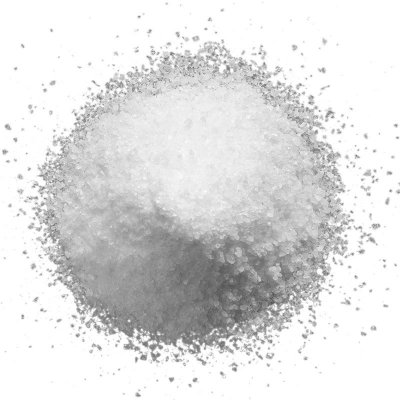Discover the Leading Advantages of Utilizing Defoamers in Industrial Processes
The usage of defoamers in commercial procedures offers a range of engaging advantages that can enhance operational effectiveness and item quality. By successfully regulating foam manufacturing, these representatives not only optimize material circulation yet also contribute to considerable expense decreases and enhanced sustainability. The implications of embracing defoamers might be extra profound than at first regarded.
Boosted Refine Performance
Maximizing commercial processes commonly entails resolving frothing concerns, which can prevent functional performance. Foam development can conflict with the appropriate performance of equipment, lower the effective usage of sources, and complicate the monitoring of important criteria. By carrying out defoamers, markets can successfully alleviate these problems, resulting in streamlined procedures and boosted performance.
Defoamers job by destabilizing the foam structure, enabling rapid collapse and significant reduction in foam quantity. This activity not just boosts the circulation of materials through equipment, such as mixers, pipes, and reactors, however likewise minimizes interruptions brought on by foam overflow. As a result, equipment downtime is decreased, allowing for an extra constant and efficient manufacturing procedure.
Furthermore, making use of defoamers can cause reduced power consumption. With much less foam to manage, compressors and pumps can operate more successfully, resulting in reduced operational expenses and an overall enhancement in procedure throughput. Eventually, the tactical use defoamers not only addresses prompt foaming difficulties yet likewise adds to a more effective commercial ecological community, fostering an affordable benefit in a demanding market.
Improved Product Top Quality
The integration of defoamers in industrial processes plays a crucial function in boosting product high quality. By properly controlling foam formation, defoamers add to the uniformity and uniformity of final items. Too much foam can lead to aeration, which negatively affects the appearance and security of formulations, especially in sectors such as food and finishes, drinks, and drugs.

In addition, defoamers assist in far better blending and dispersion of ingredients, leading to homogeneity in solutions. This is essential in applications where precise ingredient ratios are essential for efficiency and safety and security. Furthermore, the elimination of foam can lower the risk of contamination during manufacturing, further safeguarding item integrity.
Inevitably, by enhancing item high quality, defoamers not just improve customer fulfillment but additionally strengthen brand name track record. Their role in preserving premium standards emphasizes their importance in contemporary commercial processes.
Price Reduction Advantages
Executing defoamers in commercial procedures can result in substantial cost reduction benefits. By efficiently regulating foam formation, defoamers reduce item loss throughout production, thereby enhancing product use. This decrease in waste equates directly right into lower raw material expenses, boosting total functional efficiency.
Furthermore, the usage of defoamers can lower energy consumption. Excessive foam can impede devices efficiency, bring about raised power requirements to maintain production levels. By alleviating foam, defoamers promote smoother procedures, permitting equipment to run extra successfully and reducing energy expenses.

Furthermore, defoamers can shorten processing times. Foam can develop additional difficulties that lengthen manufacturing cycles. By using defoamers, markets can improve their processes, causing visit the website faster turn-around times and enhanced throughput. This efficiency not just increases manufacturing however also permits firms to fulfill market special info demands much more promptly.

Environmental Influence Mitigation
In industrial processes, the usage of defoamers plays an essential role in mitigating ecological effects related to foam generation. Foam can lead to substantial operational inadequacies, causing increased discharges and waste generation. By successfully regulating foam, defoamers aid maintain process effectiveness, consequently lowering the total ecological footprint of operations.
Moreover, excessive foam can overflow containment systems, resulting in spills that might infect dirt and water sources. Defoamers aid decrease this threat by ensuring that foaming does not exceed prescribed limits, advertising conformity with ecological regulations. This proactive approach not just safeguards ecosystems yet additionally boosts the sustainability of commercial methods.
Furthermore, making use of defoamers Read More Here can lower energy usage in numerous procedures. defoamers. Minimizing foam formation decreases the need for added energy-intensive actions, such as boosted agitation or pumping, which may otherwise be required to handle foam. Subsequently, the fostering of defoamers aligns with more comprehensive sustainability objectives by promoting power efficiency while reducing the carbon impact of commercial activities.
Inevitably, incorporating defoamers into commercial procedures is a tactical measure that sustains environmental stewardship and liable resource management.
Convenience Throughout Industries
Throughout various sectors, defoamers demonstrate impressive flexibility, adjusting to the certain needs of diverse applications. In the food and drink industry, as an example, defoamers are critical to preserving product top quality by stopping foam formation during handling, which can affect structure and taste. In the pharmaceutical sector, defoamers ensure the security of formulas, enhancing product efficacy and uniformity.
In the chemical manufacturing world, defoamers promote smoother operations by lessening foam in response vessels, thus boosting return and lowering downtime. The paper and pulp industry counts on defoamers to boost the efficiency of pulp processing and paper manufacturing, making certain optimal product stability. In addition, in wastewater therapy centers, defoamers play a vital function in managing foam throughout oygenation procedures, leading to improved treatment results.
The adaptability of defoamers prolongs to the oil and gas sector, where they assist in handling foam in boring fluids and production processes. By tailoring formulas to satisfy certain market demands, defoamers act as crucial devices that enhance operational efficiency, item top quality, and total procedure performance throughout a wide variety of markets. Their versatility highlights their value in modern industrial applications.
Conclusion
To conclude, the usage of defoamers in commercial procedures provides numerous benefits, including enhanced performance, enhanced product quality, substantial expense reductions, and favorable environmental impacts. Their capacity to efficiently control foam development adds to functional continuity and source optimization. The adaptability of defoamers across varied industries highlights their vital duty in promoting lasting practices and earnings. The integration of defoamers stands for a strategic technique to resolving difficulties connected with foam management in different manufacturing atmospheres.
Eventually, the calculated use of defoamers not only addresses prompt foaming challenges yet likewise adds to a much more reliable commercial environment, cultivating an affordable advantage in a demanding market.
In industrial processes, the use of defoamers plays an important function in mitigating ecological effects connected with foam generation. By successfully regulating foam, defoamers aid maintain process efficiency, thereby reducing the overall environmental impact of procedures.
In addition, in wastewater therapy centers, defoamers play a crucial function in controlling foam during aeration processes, leading to better therapy results.
